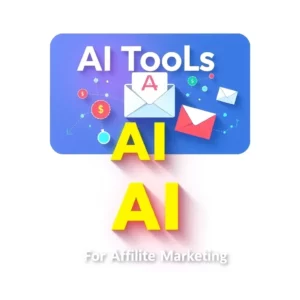How to Plan Your Week of Blogging: A Guide for Aspiring Bloggers
How to Plan Your Week of Blogging: A Guide for Aspiring Bloggers
In today’s digital age, blogging has become an empowering way for individuals to share their experiences, connect with others, and even generate extra income. For those over 50 looking to tap into this rewarding endeavor, planning your week of blogging can make all the difference. With platforms like Wealthy Affiliate to host your blog and social media channels like Facebook to promote your content, you can create a successful blogging strategy that resonates with your audience. Additionally, the rise of AI tools has made this process easier than ever. Let’s explore how to effectively plan your week of blogging.
Set Clear Goals
Before you dive into the nitty-gritty of planning, take a moment to set clear goals for your blog. Ask yourself: What do I want to achieve this week? Is it to publish a certain number of posts, attract more visitors, or engage with your audience on social media? Having specific, measurable goals will give your week structure and purpose.
For instance, you might aim to write three blog posts, share them on Facebook, and engage with your readers by responding to comments. By defining your objectives, you’ll have a clearer direction as you plan your week.
Create a Content Calendar
A content calendar is an essential tool for any blogger. It helps you organize your ideas, plan your posts, and ensure consistency in your publishing schedule. Start by mapping out your week, noting down the topics you want to cover each day.
Here’s a simple breakdown of how you might structure your week:
- Monday: Research and outline your first blog post.
- Tuesday: Write and edit the first blog post.
- Wednesday: Publish the first blog post and share it on Facebook.
- Thursday: Research and outline your second blog post.
- Friday: Write and edit the second blog post.
- Saturday: Publish the second blog post and promote it on Facebook.
- Sunday: Engage with your readers by responding to comments and planning content for the following week.
This structured approach allows you to stay organized while providing ample time for writing and promotion.Once you have this mastered it is just boosting production, for example I do about three posts a day and three on Facebook
Focus on Relevant Topics
When targeting clients over 50, it’s crucial to choose topics that resonate with their interests and needs. Think about the challenges they face and the solutions your blog can offer. Popular topics might include:
- Ways to generate extra income in retirement
- Tips for starting a blog as a beginner
- Personal finance advice for seniors
- Health and wellness tips for maintaining vitality
By addressing relevant topics, you’ll attract and engage your target audience, making them more likely to return for future content.
Leverage AI Tools
One of the most significant advancements in blogging today is the use of AI tools. These technologies can streamline your writing process, help with keyword research, and even suggest topics based on trending searches. Wealthy Affiliate is a market leader in integrating AI into their platform, providing tools that can help you optimize your content and improve your SEO.
For example, AI can assist in generating catchy headlines, drafting outlines, or even creating content ideas tailored to your target audience. By leveraging these tools, you can save time and enhance the quality of your blog posts, making your weekly planning much more efficient.
Engage with Your Audience
Engagement is key to building a loyal readership. As you plan your week, set aside time to interact with your audience on Facebook and your blog. Respond to comments, ask questions, and encourage discussions. This interaction not only fosters a sense of community but also provides valuable insights into what your audience wants to read about next.
Additionally, consider hosting live Q&A sessions on Facebook. This can be a great way to connect with your audience in real-time, allowing them to ask questions and share their thoughts directly with you.
Utilize Wealthy Affiliate Tools
Since you’re using Wealthy Affiliate as your host company, take full advantage of the resources they offer. The platform provides training, keyword research tools, and website analytics that can help you optimize your blog. Spend some time each week exploring these tools to enhance your blogging strategy.
For example, use the keyword research feature to find popular search terms related to your blog topics. This can help you tailor your content to what your audience is actively searching for, increasing your chances of being discovered online.
Monitor Your Progress
As the week comes to a close, take some time to review your progress. Did you meet your blogging goals? What worked well, and what could be improved? Monitoring your progress is essential for growth. It allows you to refine your strategies and make necessary adjustments for the following week.
Consider keeping a journal or spreadsheet to track your achievements, challenges, and reader engagement. This reflection will help you stay motivated and focused on your long-term blogging goals.
Conclusion
Planning your week of blogging doesn’t have to be overwhelming. By setting clear goals, creating a content calendar, focusing on relevant topics, leveraging AI tools, engaging with your audience, utilizing Wealthy Affiliate tools, and monitoring your progress, you can establish a successful blogging routine that resonates with clients over 50 seeking extra income.

So, grab your planner and start mapping out your week! Remember, the journey of blogging is not just about sharing your knowledge; it’s about building connections and empowering others along the way. Happy blogging!
Try Wealthy Affiliate now and make your own decission
How to Plan Your Week of Blogging: A Guide for Aspiring Bloggers by Peter Hanley
Peter Hanley – Entrepreneur & Affiliate Marketing Mentor
A lifetime in business has taught me what works—and what doesn’t. Now, in semi-retirement, I focus on affiliate marketing and helping others build their own success online. Whether you’re starting fresh or refining your strategy, I’m here to guide the way.
Hook or lose them, why your first 300 words makes all the difference
Is AI marketing the new Gold Rush? The truth behind the hype
